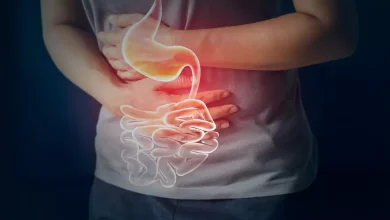All about Dysphagia?

What is Dysphagia?
Dysphagia is the medical term given for difficulty in swallowing. While you swallow, various muscles and nerves function together to transfer food or drink from your mouth to your stomach. When there is a problem with how these parts function, swallowing might be slow or uncomfortable. You might choke or cough while trying to swallow food, water, food, or even your own saliva. Sometimes you might find it difficult to swallow food like when you eat too rapidly or don’t chew your food well enough, and usually, these are not causes for concern. But ongoing dysphagia might be painful and in some instances, it’s impossible to swallow making it a serious medical condition that requires treatment. Dysphagia can occur at any age, but older adults are more likely to have it. The causes of swallowing problems differ, and treatment is based on the cause.
What are the Types of Dysphagia?
Doctors have classified dysphagia into three types depending on where the problem is including:
Oral dysphagia: In this type of dysphagia, the problem is in your mouth. Your jaw, teeth, and tongue function together to break food into smaller pieces while chewing. Your salivary glands make spit that softens the food so it tears apart easily.
Oropharyngeal dysphagia: In this type of dysphagia, the problem is in your throat. After your mouth breaks down the food, your tongue pushes it to the back of your throat. Your voice box closes to avert food or liquid from slipping into your airway on its way to your oesophagus. Oropharyngeal dysphagia is also called transfer dysphagia. In oropharyngeal dysphagia, there are problems sending food from your mouth to your throat.
Esophageal dysphagia: In this type of dysphagia, the problem is in your oesophagus. Your oesophagus squeezes the food or liquid down until it reaches your stomach.
What are the Symptoms of Dysphagia?

The symptoms of dysphagia might include:
- Experiencing pain while swallowing food or water.
- Difficulty or not able to swallow.
- Feeling of food being stuck in the throat, chest or back of the breastbone.
- Drooling.
- Hoarseness.
- Food coming back up, a condition known as regurgitation.
- Constant heartburn.
- Food or stomach acid coming back to the throat.
- Unexplained weight loss.
- Gagging or coughing while swallowing.
What are the Causes of Dysphagia?
Any condition or disease that affects the muscles or nerves that aid you in swallowing can lead to dysphagia.
Nervous system and brain disorders: Diseases and injuries that affect your brain and nervous system (the network of nerves controlling muscles and organs) that cause dysphagia include:
Amyotrophic lateral sclerosis (ALS): It is a condition that makes the nerves that control your muscles weak.
Brain tumours: Tumours in your brain (both cancerous and benign) can block the nerve signals that signal your muscles to move.
Cerebral palsy: A developmental disorder you’re born with makes it difficult to move and coordinate muscles.
Dementia: A mental state connected with several diseases involving problems in thinking and coordinating movement.
Multiple sclerosis (MS): An autoimmune disease that harms the nerves in your brain and spinal cord can also cause dysphagia.
Parkinson’s disease: It’s a disorder that causes tissue in your brain to deteriorate, creating issues with coordination and movement.
Muscle disorders: Conditions that prevent the muscles in your head and neck from helping you swallow include:
Achalasia: It’s a rare condition where muscles at the bottom of your oesophagus are not relaxing to permit food to enter your stomach.
Cricopharyngeal spasms: Spasms (abnormal contractions) occur when the muscle at the top of your oesophagus squeezes very much, causing the sensation that something’s stuck in your throat.
Esophageal spasms: Spasms occur when different muscles in your oesophagus squeeze very much.
Muscular dystrophy: It’s a group of inherited conditions that leads to muscles to weaken over time.
Myasthenia gravis: An autoimmune disease disrupts the signals nerves send to muscles and makes it difficult to control movements.
Myositis: An autoimmune disease that can result in muscle weakness in your throat and oesophagus.
Scleroderma: An autoimmune disease that leads to scar tissue to develop in your oesophagus. The stiff tissue stops your oesophagus muscles from squeezing to move food toward your stomach.
Narrowing, blockages, and structural issues: Disorders that block or result in your throat or oesophagus being too narrow can make it difficult to swallow. Causes include:
Cancer: Tumours in your head and neck may block food and drink. Esophageal cancer is the most common type of cancer-causing dysphagia.
Eosinophilic esophagitis: It’s a condition that occurs when several white blood cells (eosinophils) accumulate in your oesophagus and cause stiffness.
Esophageal diverticulum: A weak pouch forms in the lining of your oesophagus. Food bits can build up in the pouch, and create the sensation that something’s stuck in your throat. The most common type is known as Zenker’s diverticulum.
GERD (acid reflux disease): A condition where stomach acid can flow backward into your oesophagus, and cause scar tissue. The tissue can result in tightening known as esophageal strictures and irritation called Barrett’s oesophagus. These conditions might make swallowing difficult and painful.
Other causes: Infections, such as strep throat (bacterial tonsillitis), can lead to pain and inflammation and cause dysphagia. Dysphagia might also happen after surgery to your head and neck or other forms of treatment.
What are the Risk Factors of Dysphagia?
The risk factors of dysphagia might include:
Ageing: Older adults have an increased risk of having swallowing difficulties. It’s because of natural ageing and wear and tear on the oesophagus along with the bigger risk of some specific conditions, like stroke or Parkinson’s disease.
Certain health problems: People with particular neurological or nervous system complications have an increased risk of having problems while swallowing.
What are the Complications of Dysphagia?
Not being able to swallow foods can cause complications including:
Malnutrition, weight loss, and dehydration because of not being able to take in enough food and fluids.
Aspiration pneumonia: Food or liquid entering the airway while trying to swallow can lead to aspiration pneumonia because of the food introducing bacteria into the lungs.
Choking: Food stuck in the throat might result in choking. If the airway is completely blocked because of food and if a successful Heimlich manoeuvre is not provided, even death can happen.
How Dysphagia is Diagnosed?
Your doctor will inquire about our symptoms and perform a physical exam to diagnose dysphagia. They also might carry out a few tests to examine the structures in your head and neck to help you swallow.
The typical tests to diagnose dysphagia include:
Esophagram (barium swallow test): In this procedure a radiologist will give a barium solution to drink that will clearly show your throat and oesophagus on X-rays. X-rays that show a video of how your oesophagus works as you swallow will be taken which helps to diagnose the cause of your dysphagia.
Esophagoduodenoscopy (EGD) or upper endoscopy: Here a gastroenterologist will place a scope down your throat that will take images of your throat, stomach, and oesophagus. It reveals the narrowing, tumours, and disorders such as Barrett’s oesophagus.
Laryngoscopy: Here an otolaryngologist (ear, nose, and throat doctor) will attach a tiny scope in your nose that helps them to check your throat and voice box for irregularities.
Modified barium swallow: In this procedure, a speech-language pathologist (SLP) will give you a liquid and food covered with barium for swallowing. After you swallow them, they will tell you when to chew and swallow, and during the process, a radiologist will X-rays recording how your mouth, throat, and oesophagus are working.
Fiberoptic endoscopic evaluation of swallowing (FEES): Here an SLP attaches a tiny camera into your nose that helps them to view your voice box and the top of your oesophagus. After the camera is attached, you have to consume liquids and food that contains a dye that makes them show up on camera. The SLP will view the swallowing procedure and examine how the food enters your airway.
Esophageal manometry: Here a gastroenterologist will pass a tube from your nose to your stomach. After the tube is placed, you will have to drink water. The tube is linked to a pressure recorder measuring contractions in your oesophagus while you swallow the fluid.
What are the Treatment Options available for Dysphagia?
Treatment for dysphagia is based on the cause and the severity of the problem. Your treatment may include:
Medication: Your doctor might refer to antimicrobials to treat infections (generally caused by viruses or fungi) causing dysphagia.
Lifestyle changes: Your doctor may advise you to change your diet along with your eating habits. You might require softer foods that can be easily chewed. You might be required to avoid food and drink that is too hot or cold.
Other medical therapy: If any neurological problem is making it difficult for you to swallow, then your options might include botulinum toxin injections to ease muscle spasms. You might require a process to enlarge your oesophagus or get rid of an obstruction.
Feeding tube: Your doctor might prescribe a feeding tube if you are not able to swallow food or if you’re at risk of choking. A feeding tube provides nutrients directly to your intestines or your stomach.
Living with Dysphagia
Coughing, choking and the feeling of something stuck in your throat can be quite unpleasant, but they can also send life-saving signals to seek medical help. If you’re frequently struggling to swallow, you should consult with your doctor. If your body is not getting enough nutrients because you are not able to swallow food then there are other options available to provide you the required nutrients.
Whom To Consult?
You visit your doctor if you frequently have problems swallowing or if weight loss, regurgitation, or vomiting occurs with your dysphagia. If your breathing is becoming difficult due to a blockage, call for emergency help immediately. If you cannot swallow food because you feel that food is stuck in your throat or chest, seek medical help as soon as possible.




